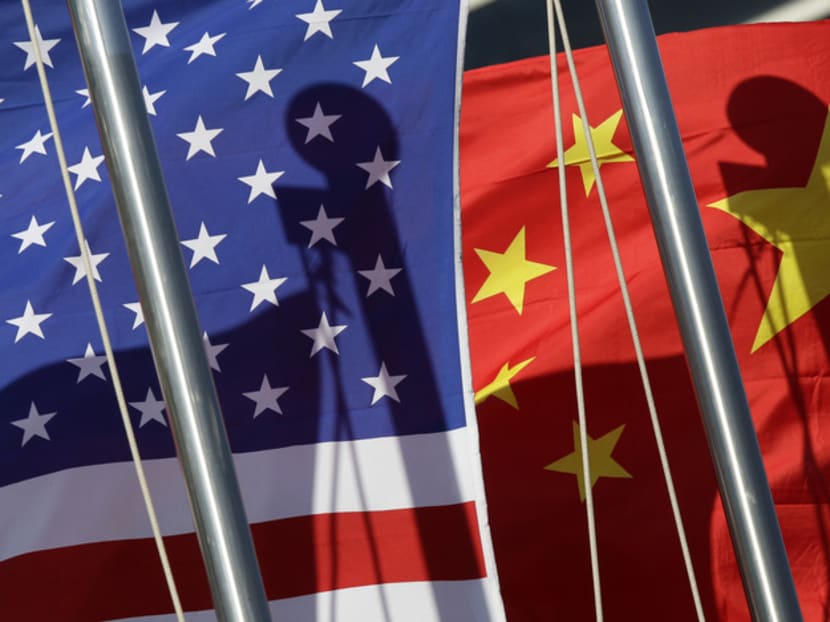US and China need to solve fundamental issues first: Chan Chun Sing
SINGAPORE — Progress in tense relations between the United States and China will take some time, given the number of fundamental issues both face internally and with each other, said Trade and Industry Minister Chan Chun Sing on Tuesday (June 4).

Trade and Industry Minister Chan Chun Sing said China and the United States will take some time to sort out their differences.
SINGAPORE — Progress in tense relations between the United States and China will take some time, given the number of fundamental issues both face internally and with each other, said Trade and Industry Minister Chan Chun Sing on Tuesday (June 4).
Speaking in a dialogue session at the Singapore Business Federation’s (SBF) annual Asean Conference, Mr Chan was asked to weigh in on the US-China trade tensions based on his experience with officials from both countries.
SBF chief executive Ho Meng Kit, who moderated the session, also wanted to find out about the likely longer-term outcome of the increasingly fraught relationship between the two nations.
Before sharing his observations, Mr Chan clarified that his objective is to help audiences understand why the current situation unfolded the way it did: “I’m making no judgements to whether the (US’ and China’s) perspectives are valid or not.”
“In my conversations with both the US and China, both sides have hardened their views. The US feels very frustrated with the current situation, the US thinks that the Chinese have done many injustices to them. That is how the US sees China,” said Mr Chan, who visited Washington in March and Beijing in April.
“On the other hand, there are many quarters in the Chinese side that see the US as trying to thwart their rise, their growth. So there is a lack of strategic trust between the two, and that will take time to resolve.”
But there is another perspective of the conflict that stems from internal issues in both nations that have still not been addressed, said Mr Chan, citing his conversations with officials.
These issues need to be addressed before they can deal with each other confidently, he added.
“The US needs to focus on how it can maintain its long-term competitiveness, which will be very much defined by its enterprise, its innovation, the skills of its people, the investment on its infrastructure and so on,” he said.
In the IMD World Competitiveness Ranking 2019 released in May, the US slipped from the top spot to third, behind Hong Kong. Singapore moved from third to the top position.
For its part, China is experiencing an unequal pace of development between its first tier cities — such as Shanghai and Tianjin — and the others, noted Mr Chan. There is also unequal growth between the provinces, with coastal provinces growing faster than those inland, creating inequality.
Chinese policymakers also have to grapple with the resource allocation issue between privately-held and state-owned enterprises without risking the loss of political control, said Mr Chan.
He said: “If the US and China want to deal with each other confidently, they must look into their respective long term challenges.”
Meanwhile, the rest of the world, including the Association of South-east Asian Nations (Asean), can continue to work towards a set of rules that is open, transparent and inclusive for all countries — big and small — to work together, he added.
Mr Chan said: “The more we are able to leverage each other’s comparative advantage, the more we are able to boost global production for the good of people. The more we are fragmented, the more difficult it is for the respective countries to realise their potential.”
Mr Ho then asked about the dangers of a weak political centre, referring to a speech by Mr Chan in March about the need for strong political leadership so that countries may keep pace with a fast-changing economic climate.
In response, Mr Chan said this is a risk to all countries, not just within Asean.
A weak political centre which cannot help its businesses and workers adapt and adjust will end up frustrating workers and businesses, who will vote for those who pander to their short-term needs — weakening the system further, he said.
This is seen in many other countries in which political parties “narrow cast their messages to try to attract voters”, added Mr Chan, without giving examples.
“In Singapore, we are determined to muster our resources to help our businesses and workers adjust and adapt. We have no option of closing our markets, no option of not integrating with the rest of the world – so we are very clear.
“It is not easy but it has to be done,” he said.








